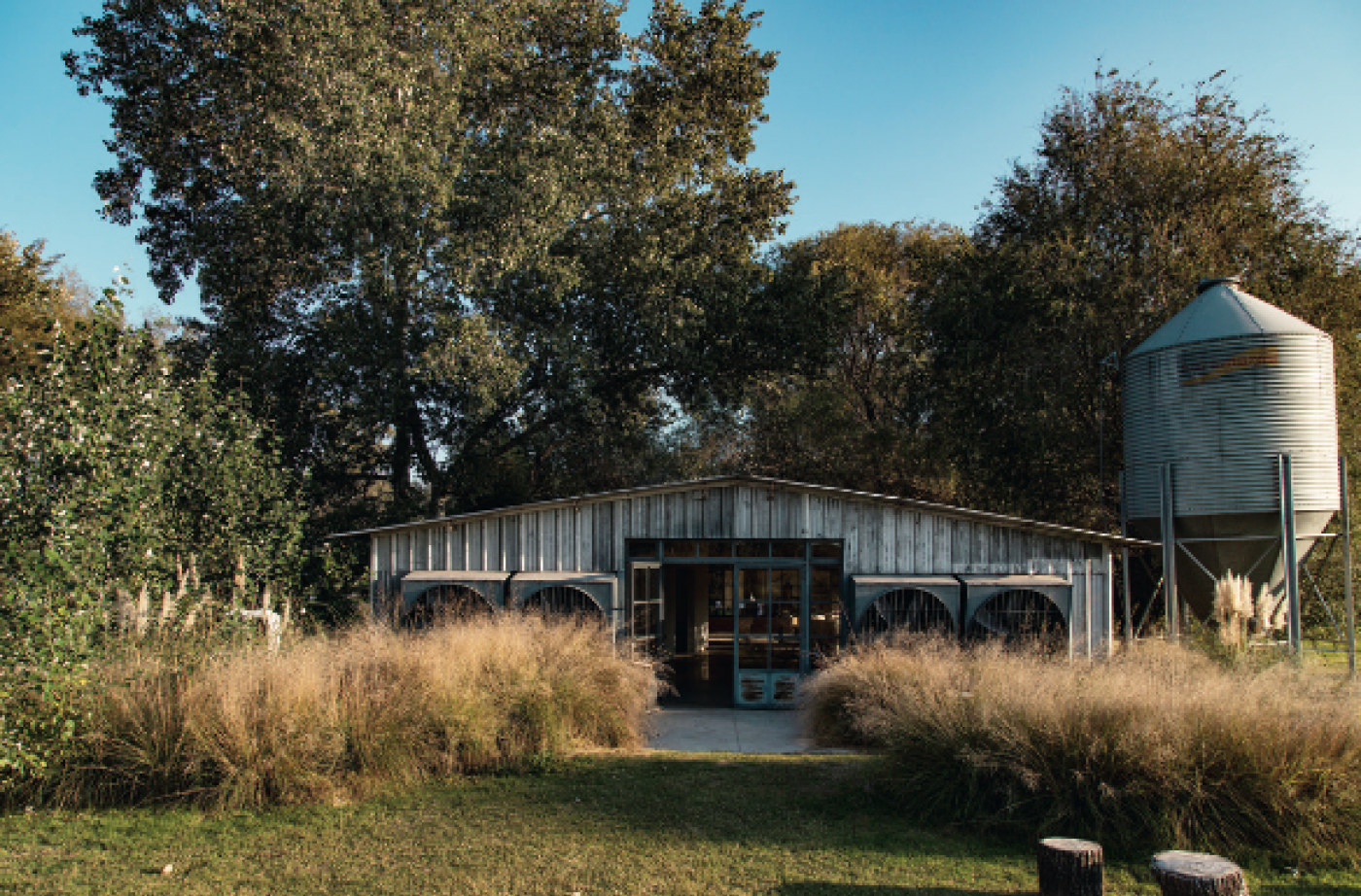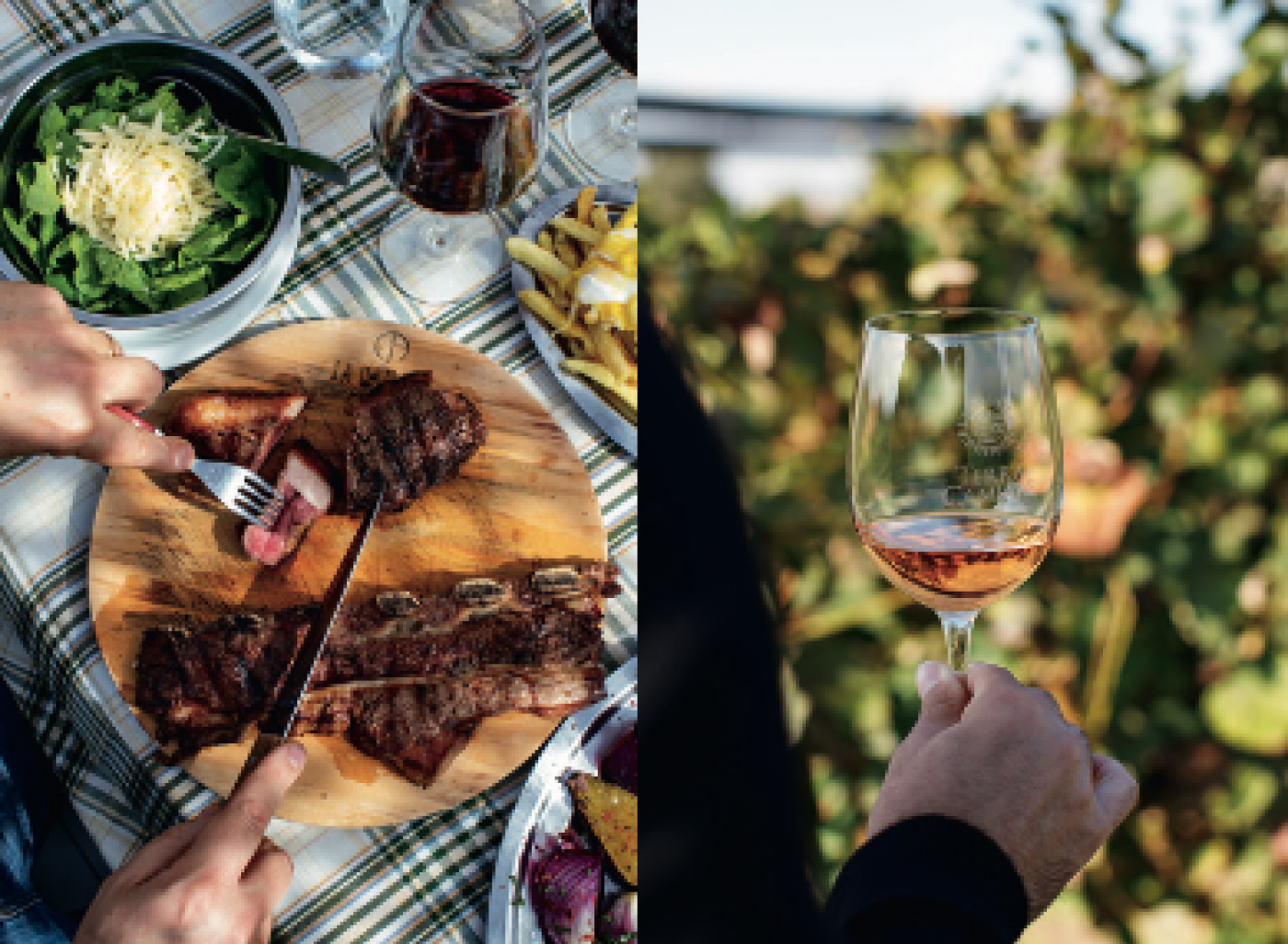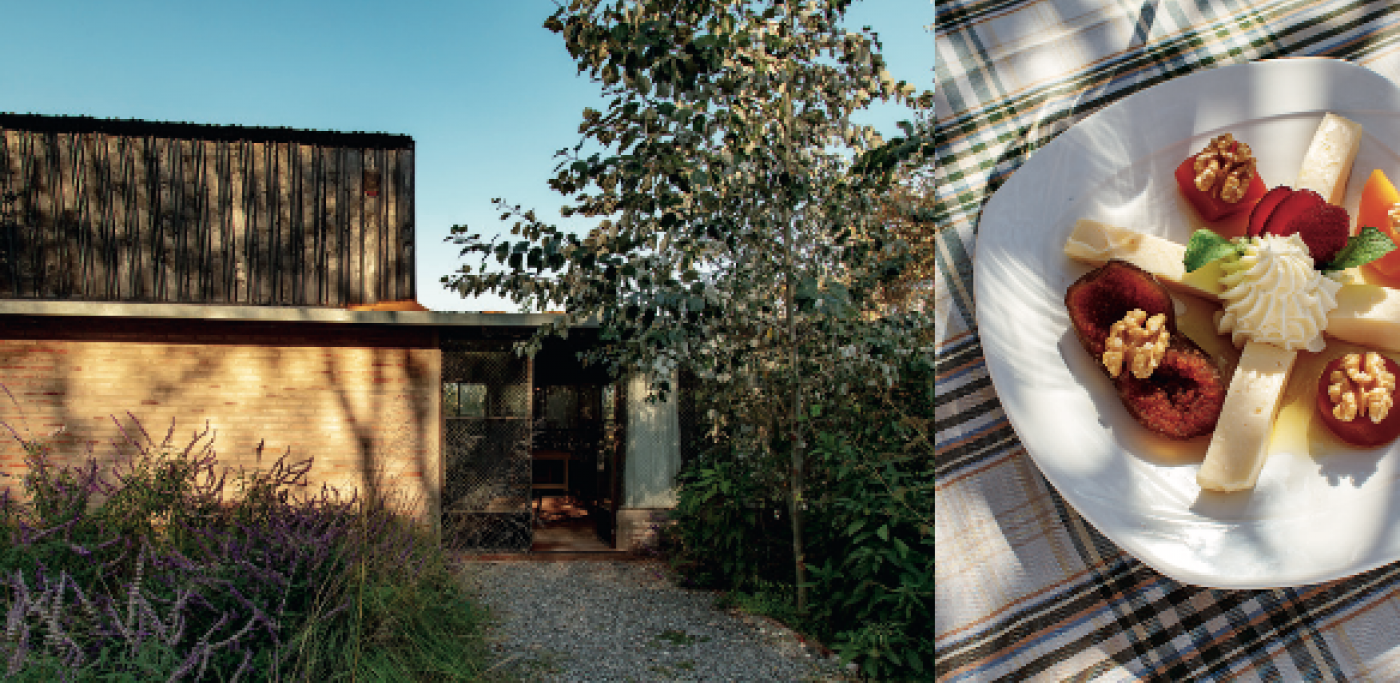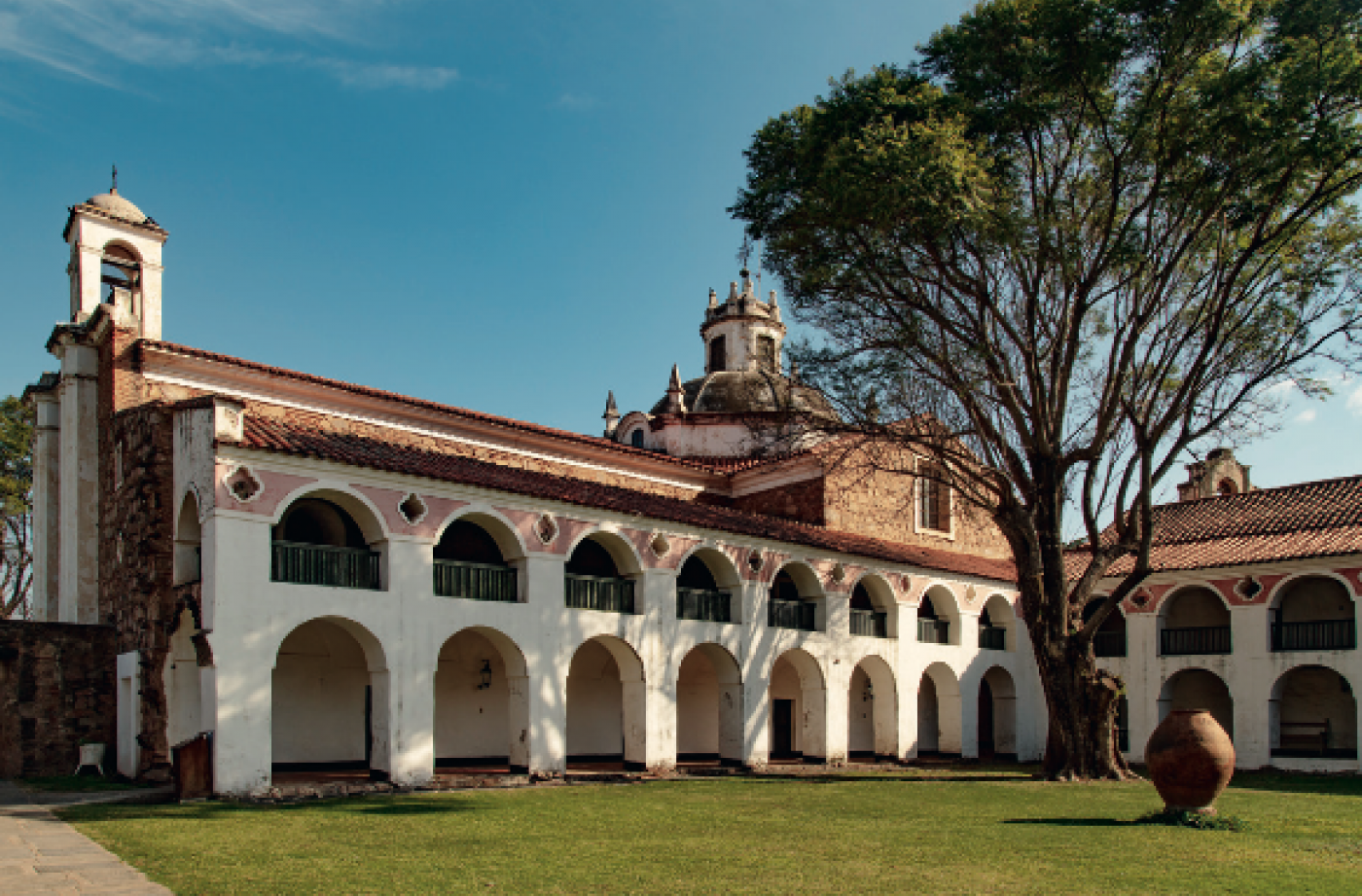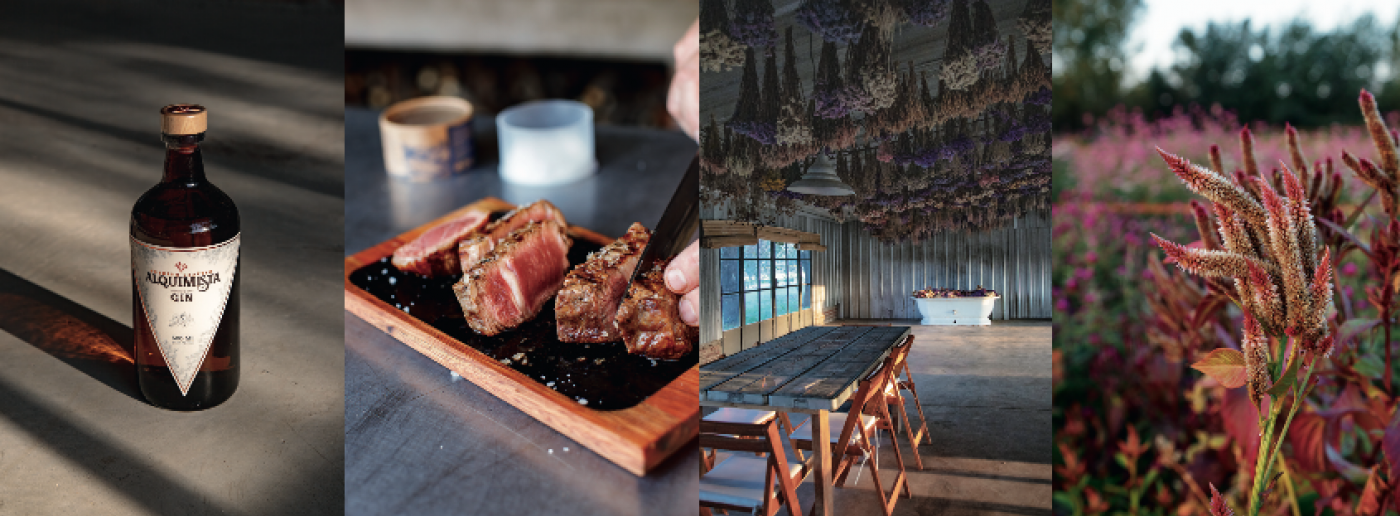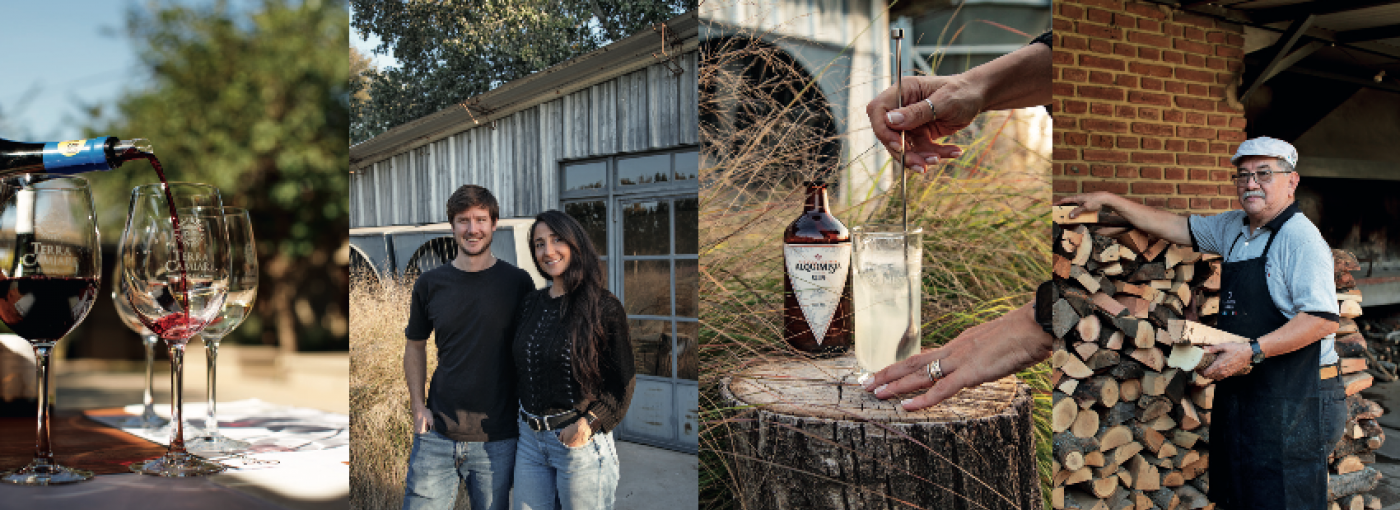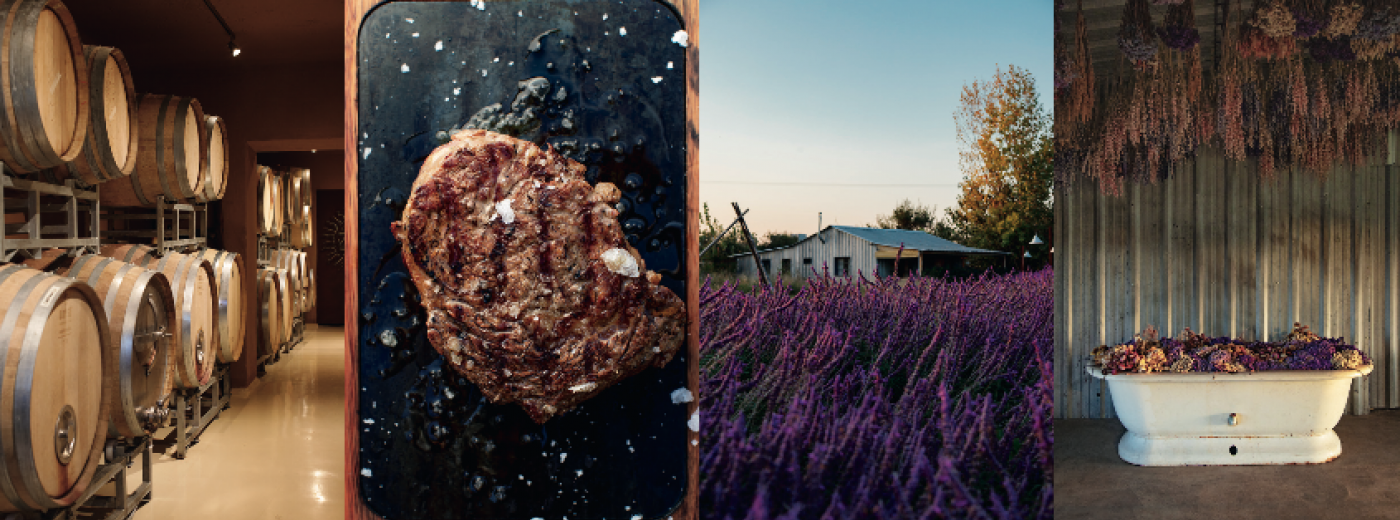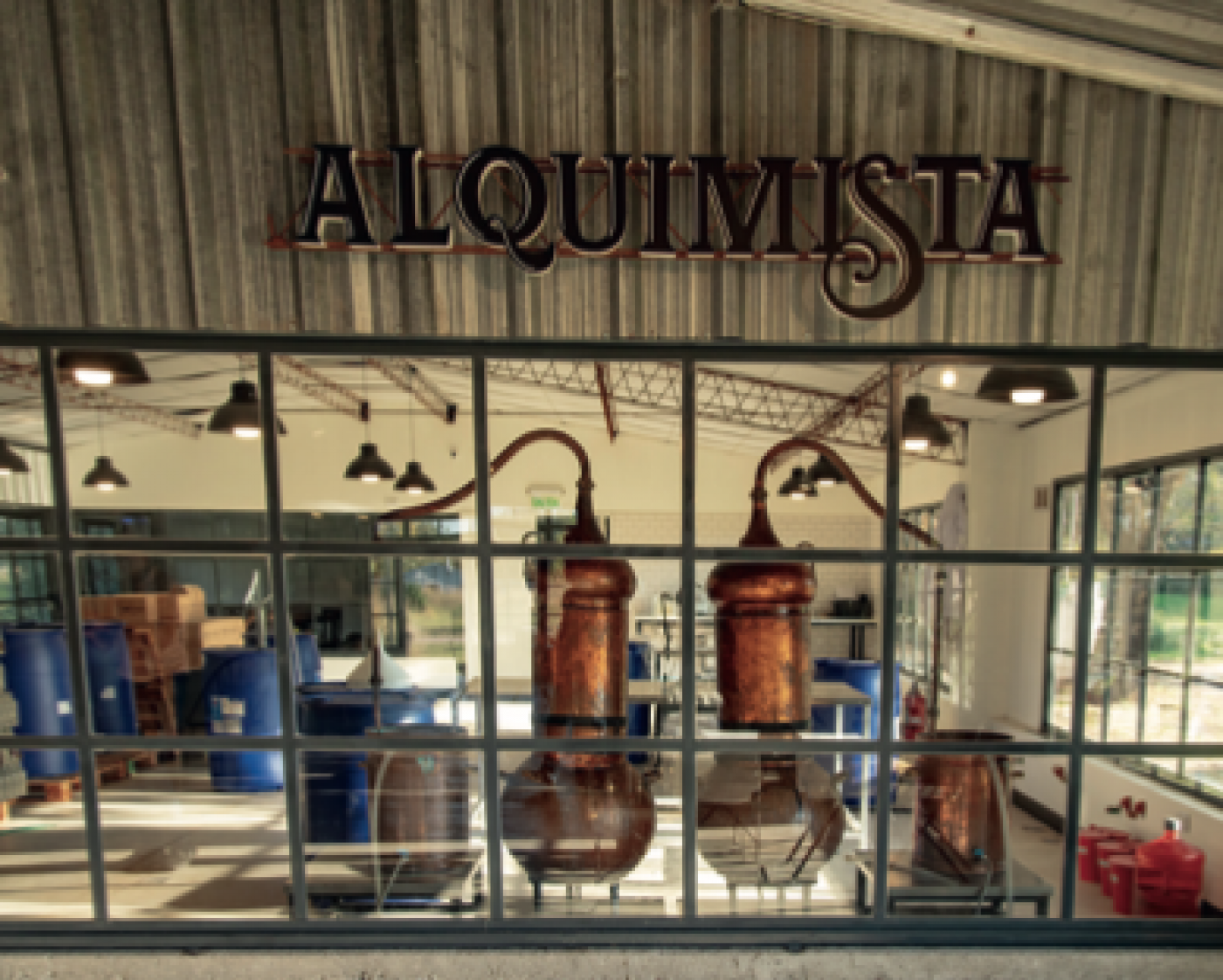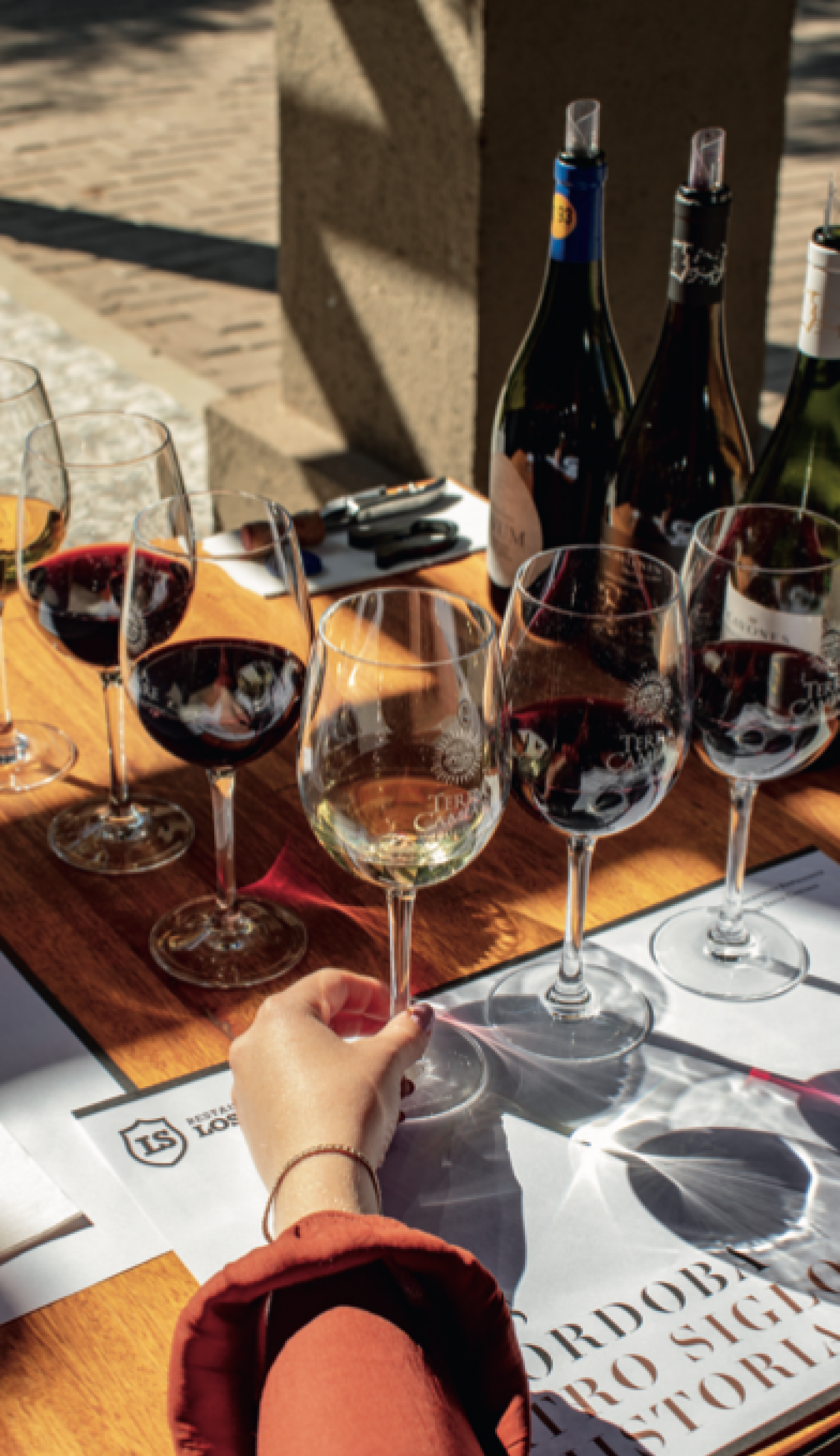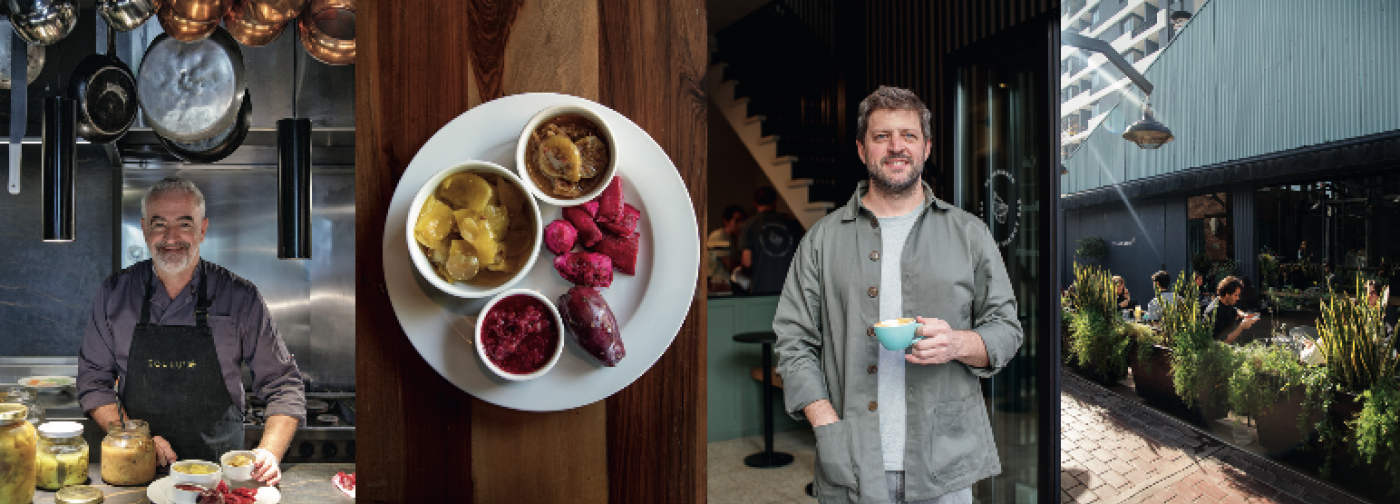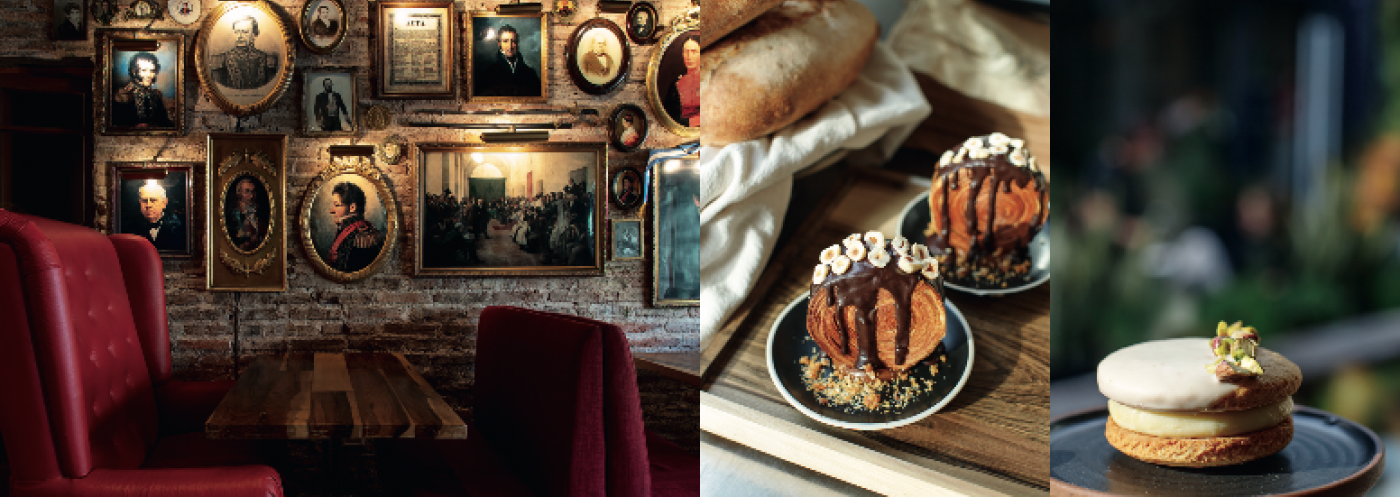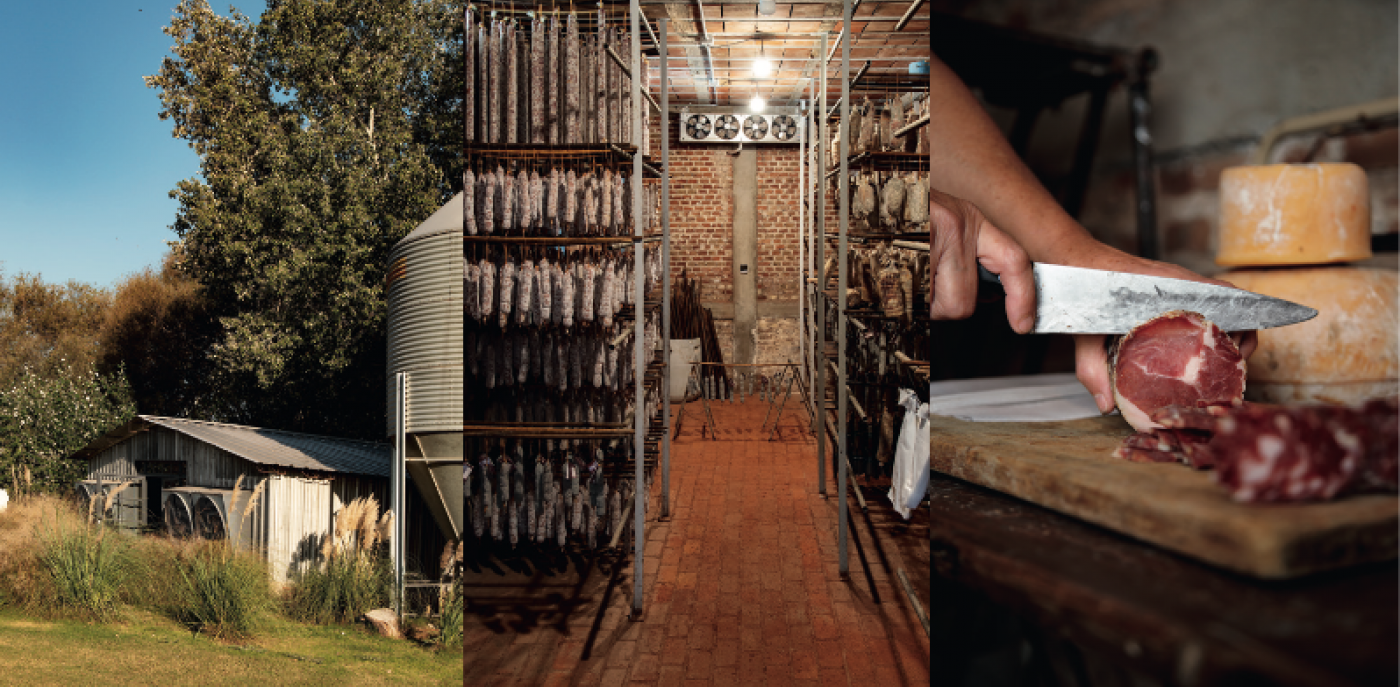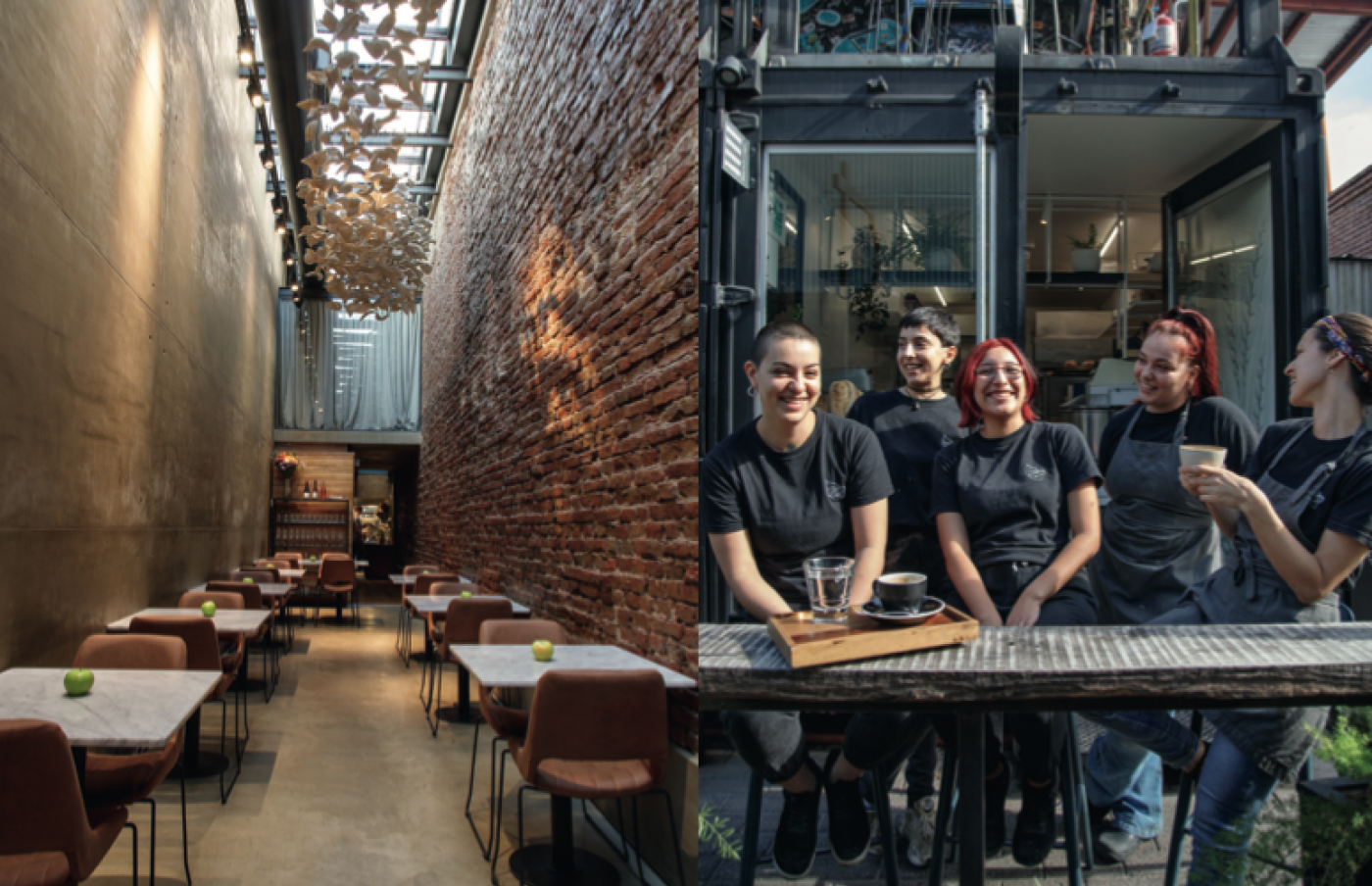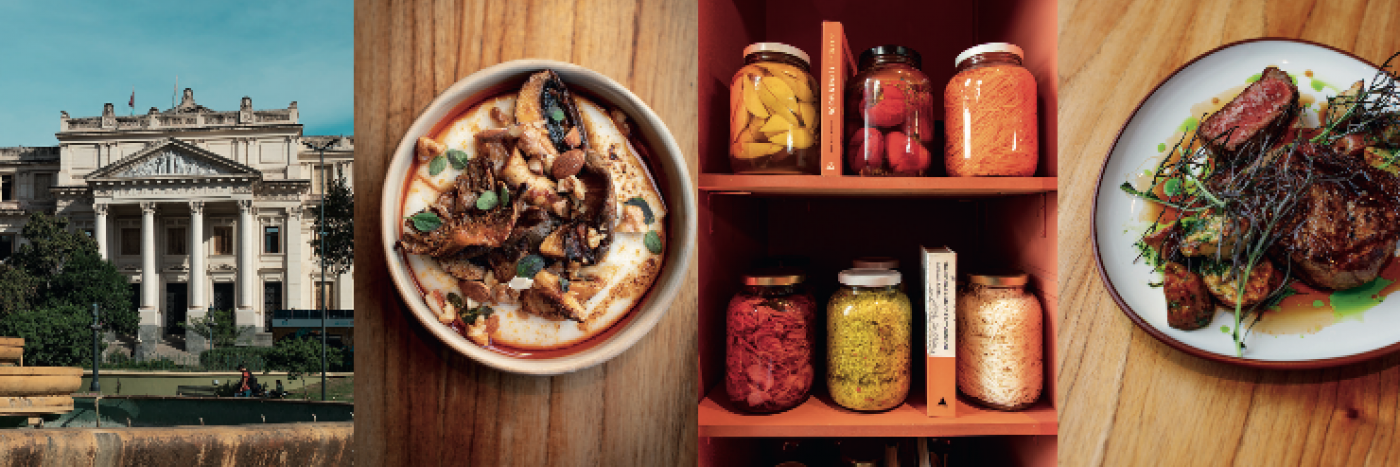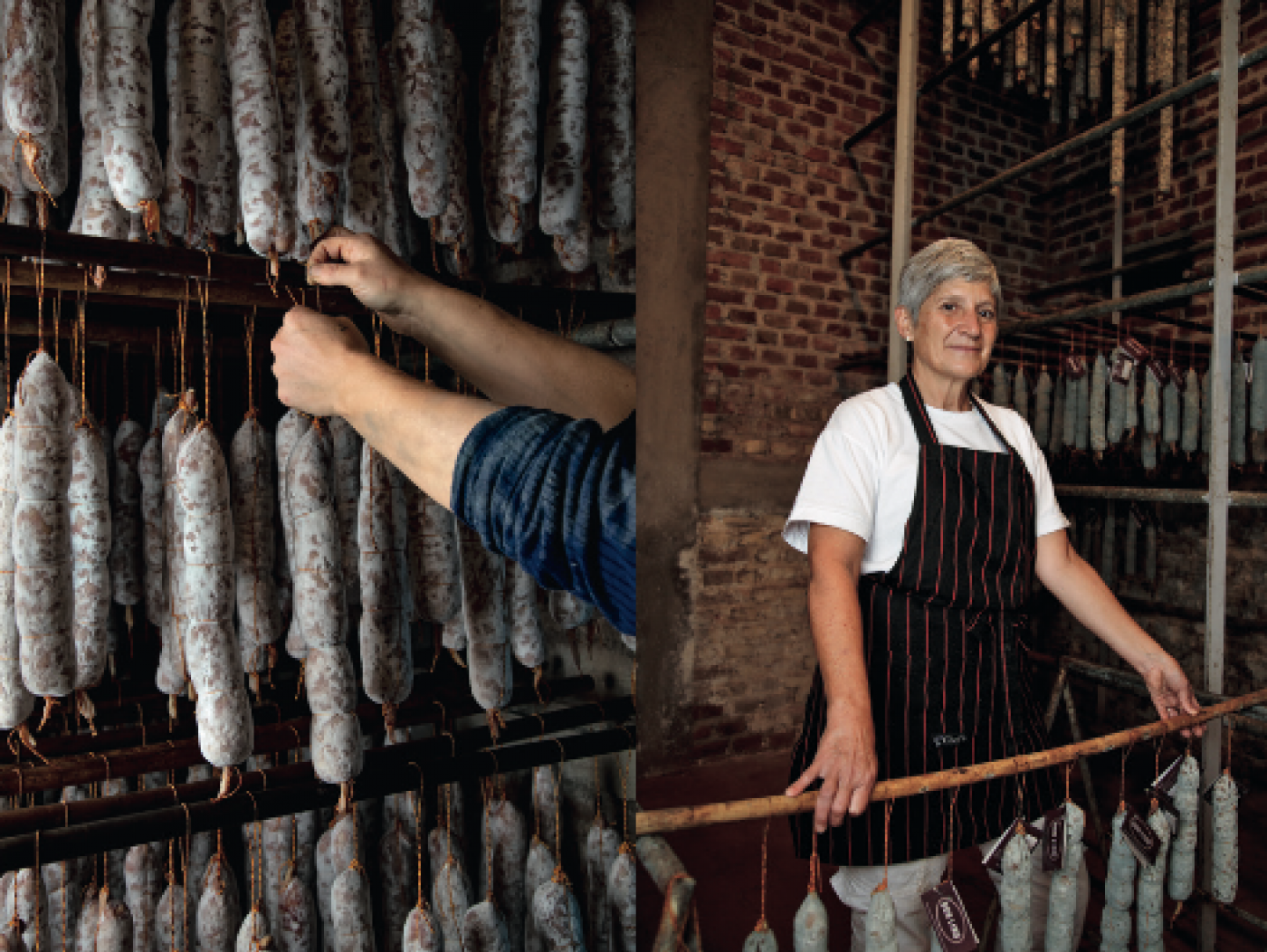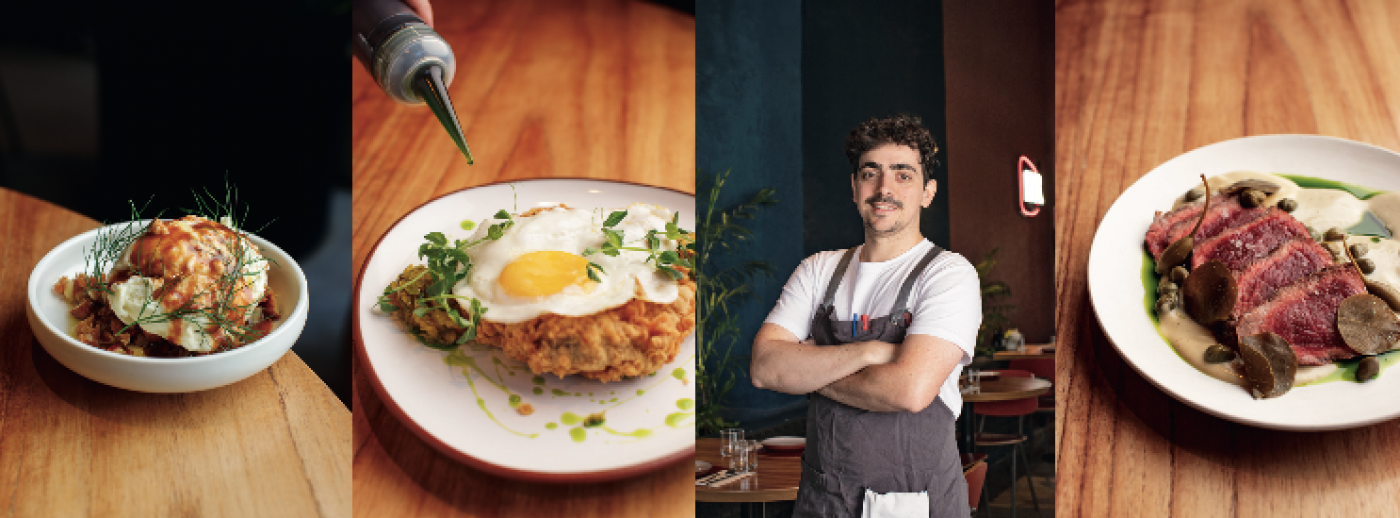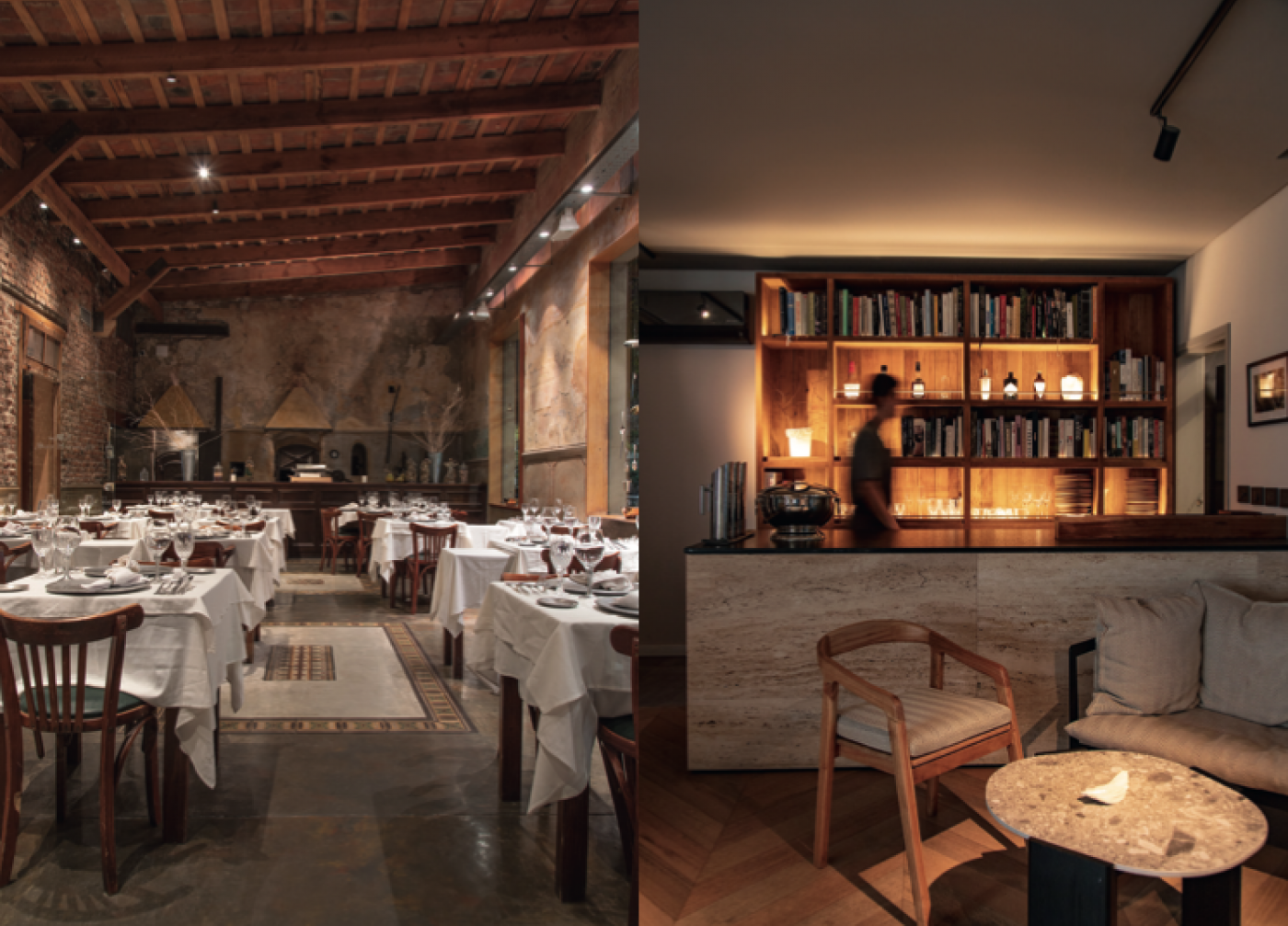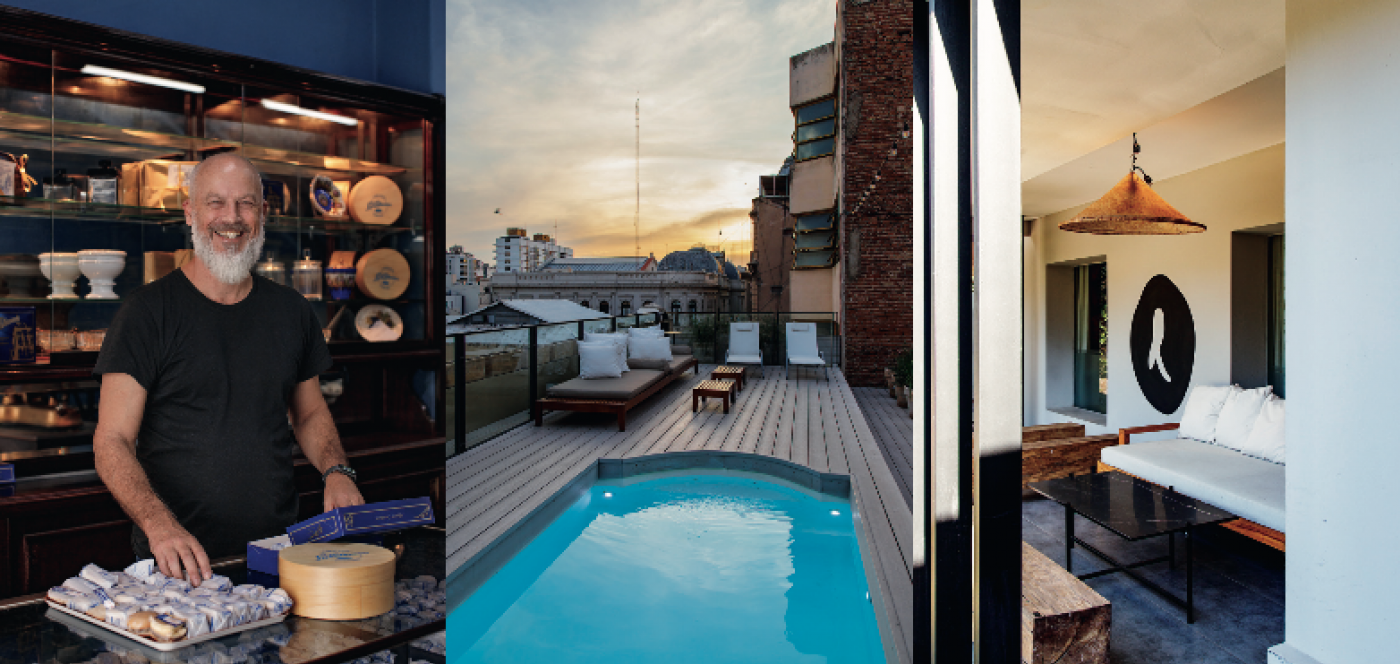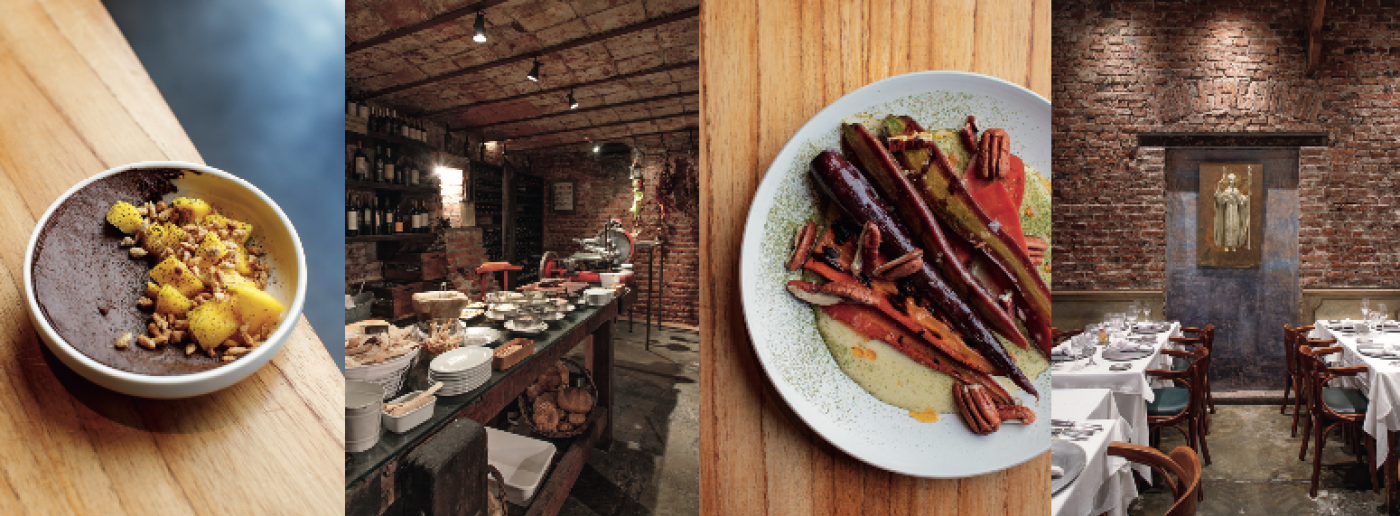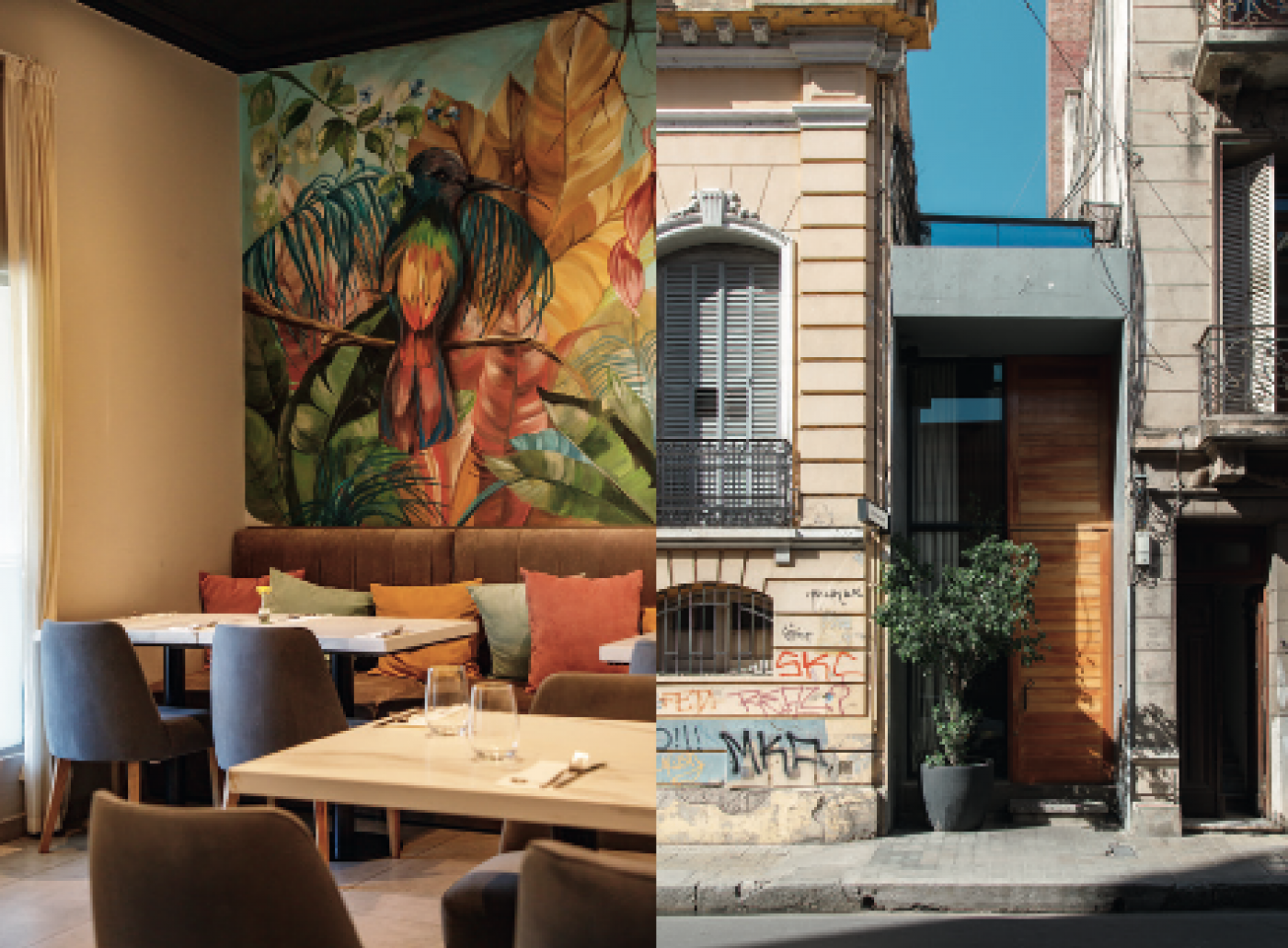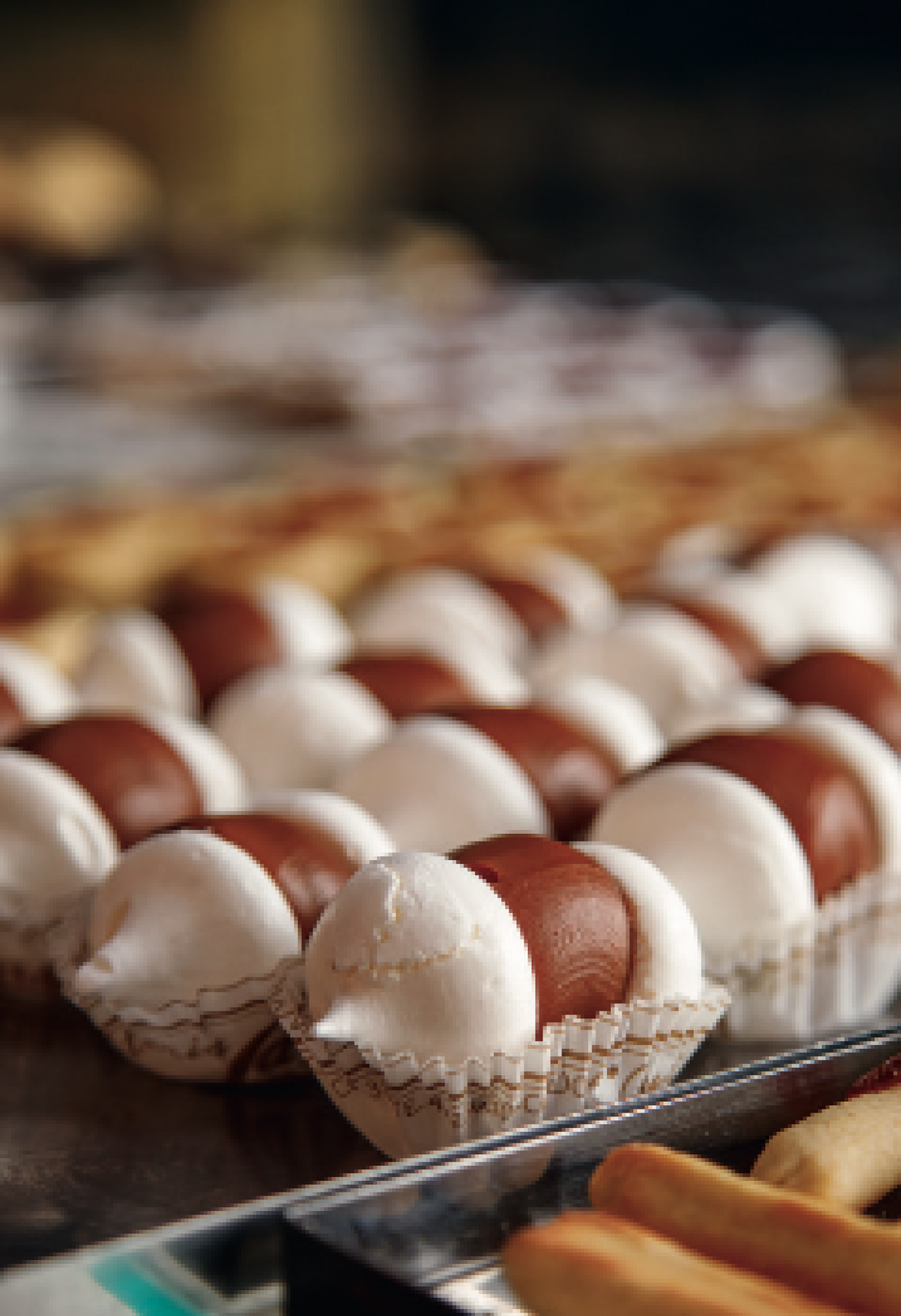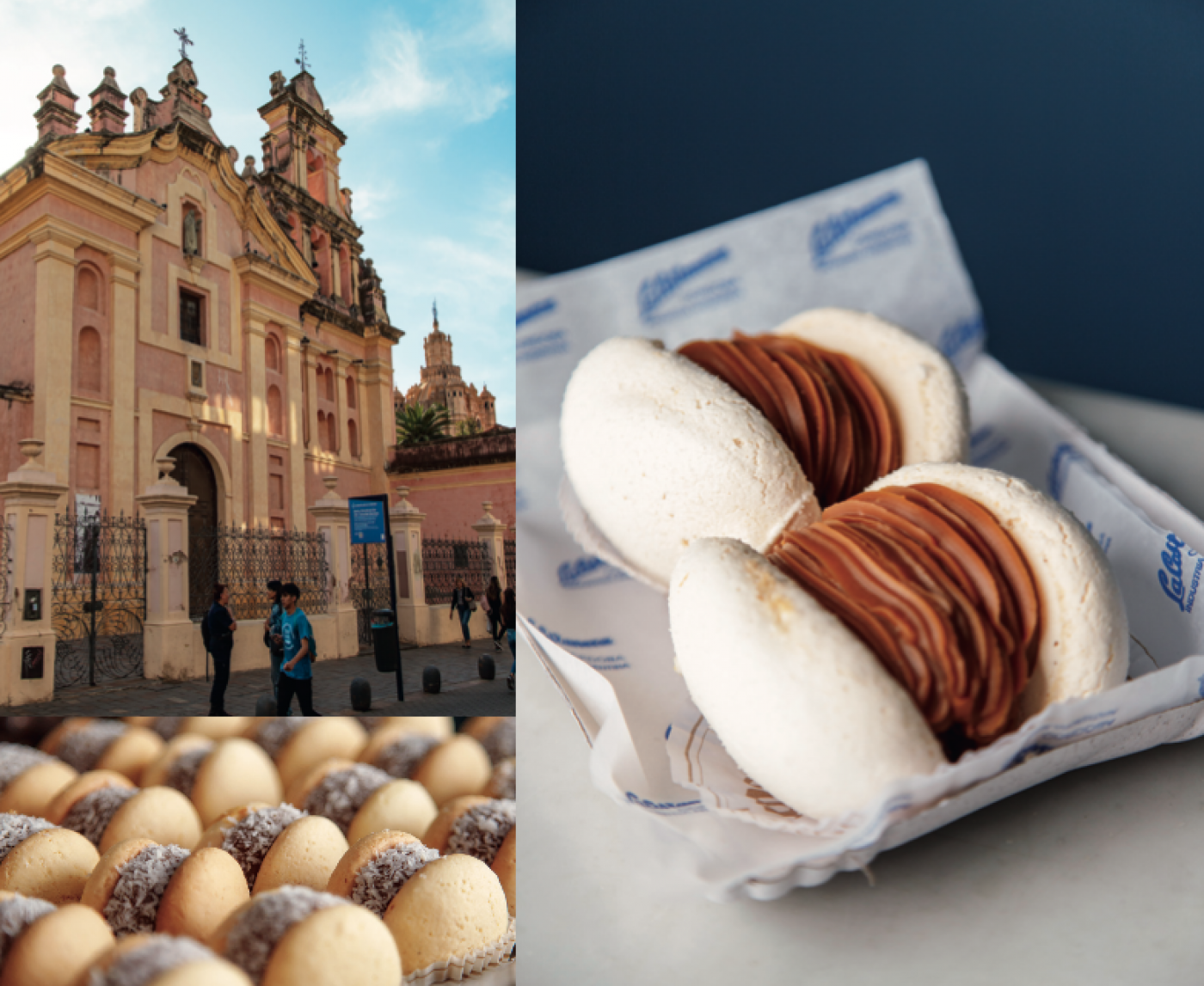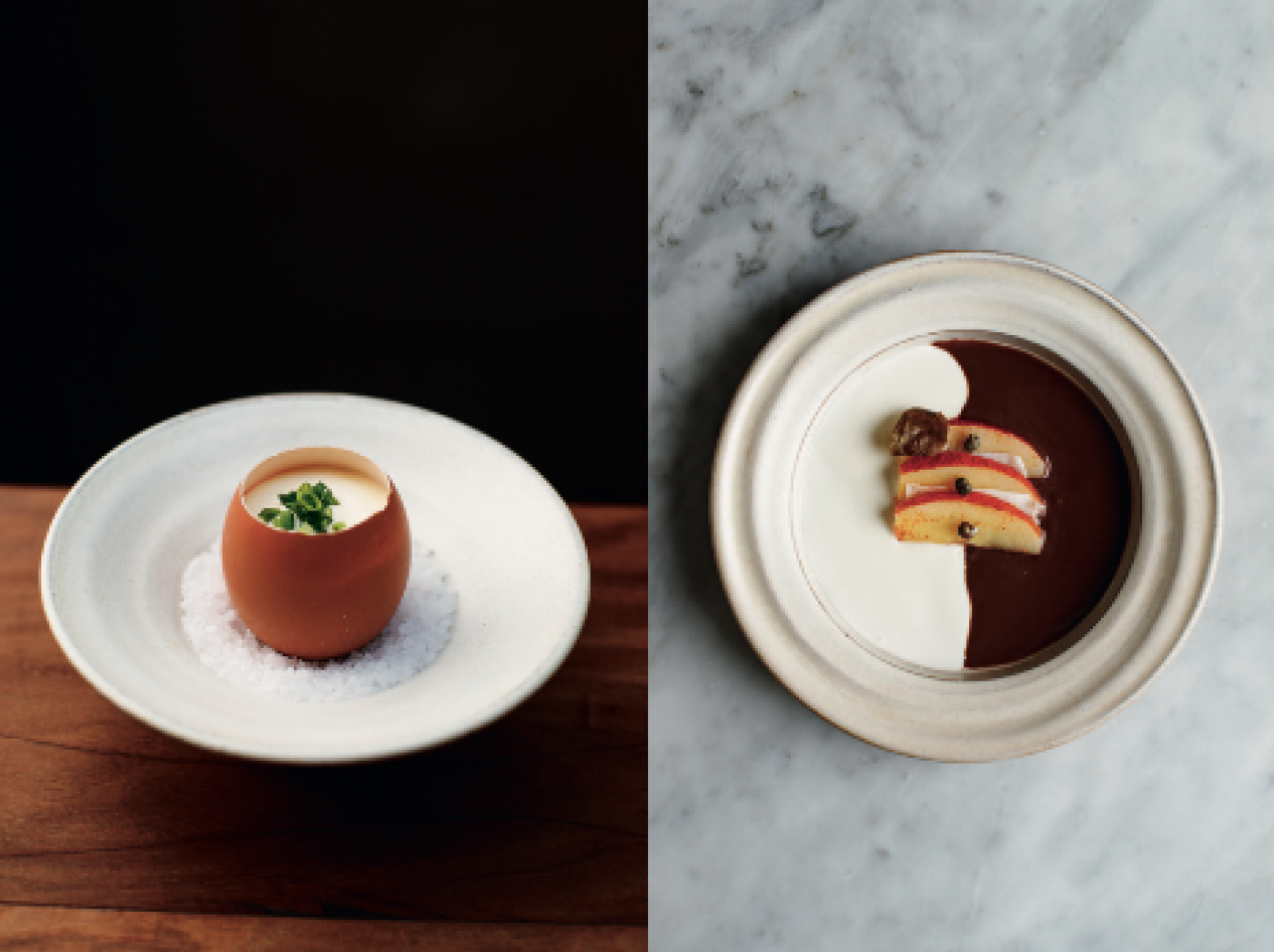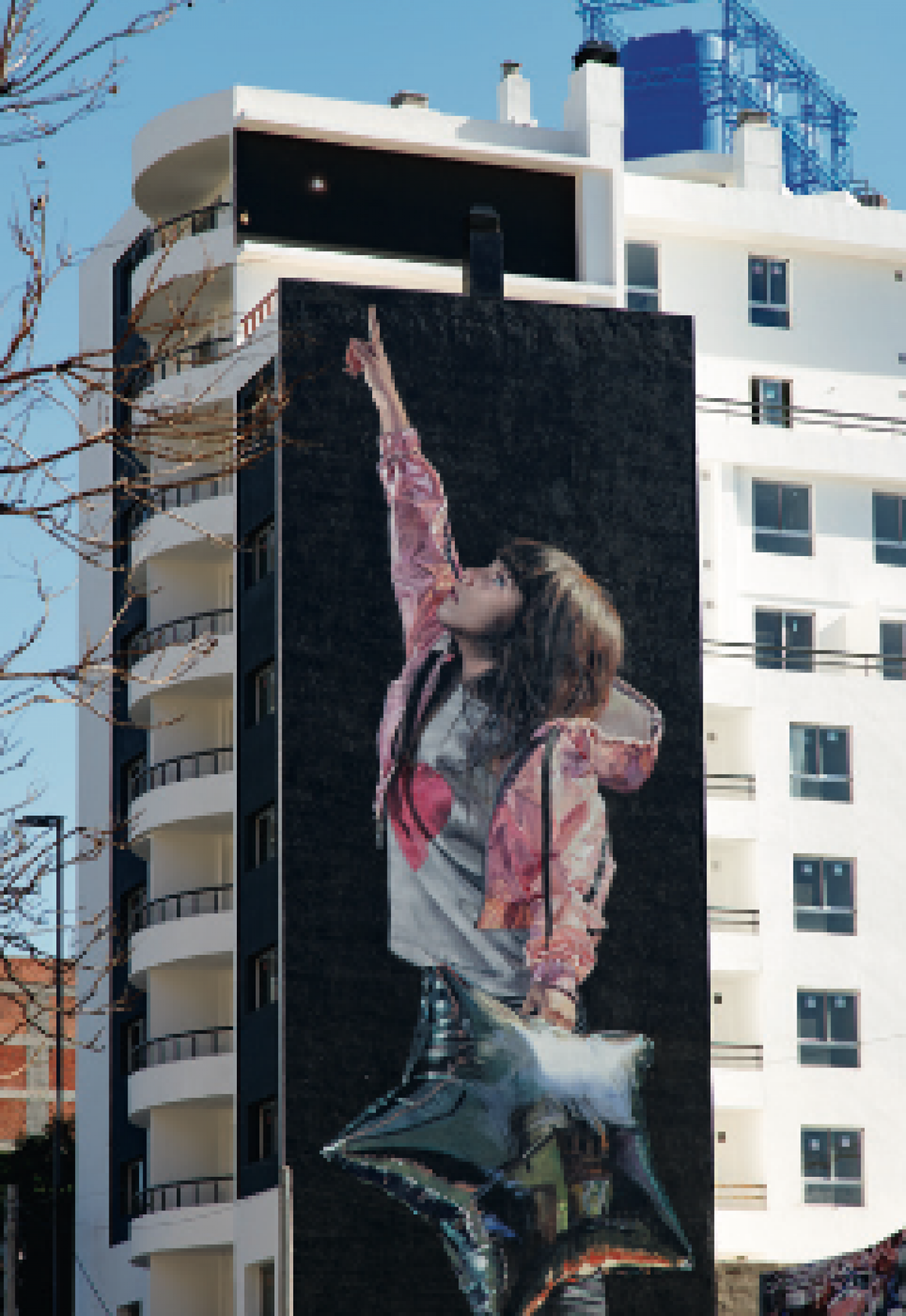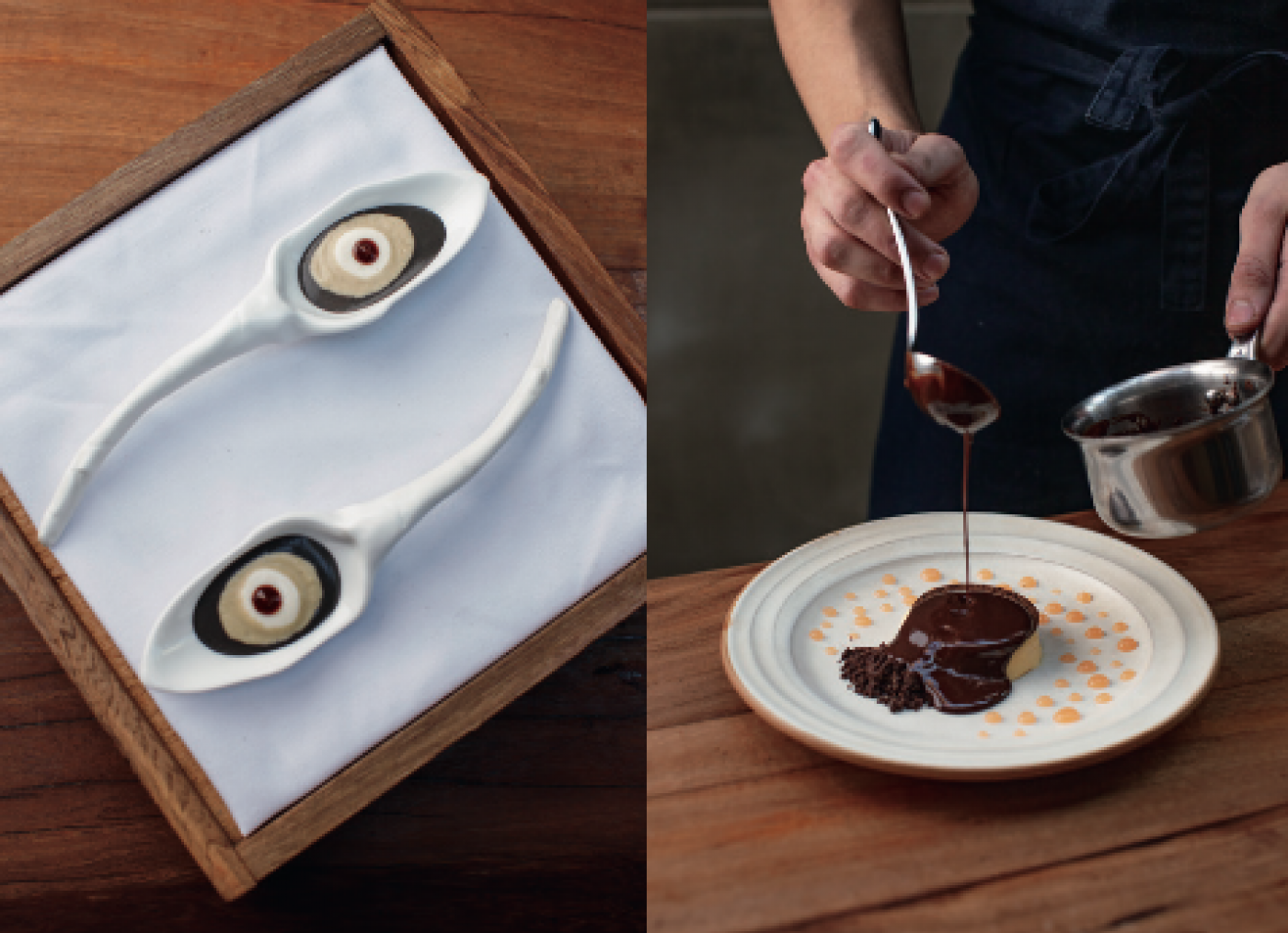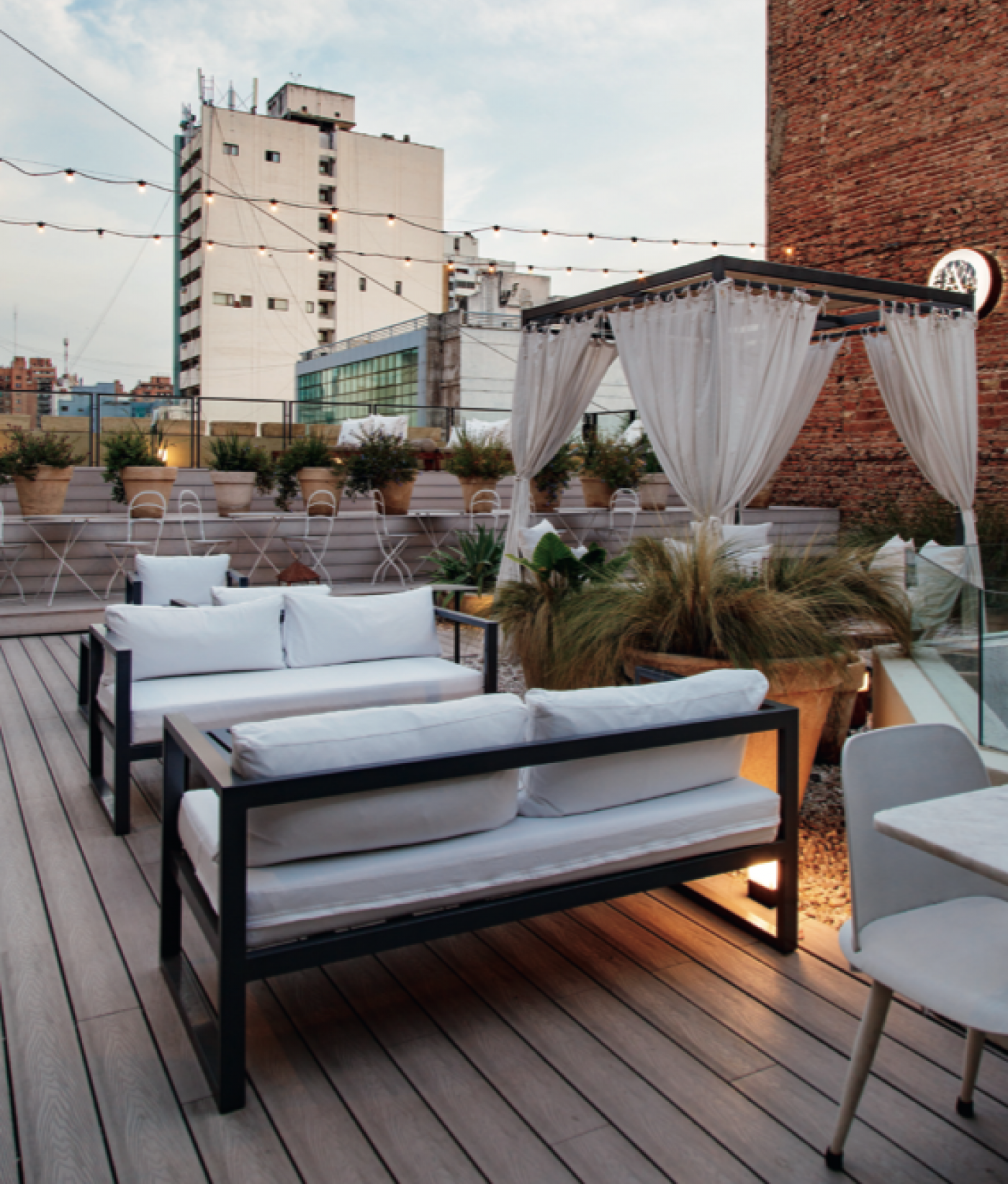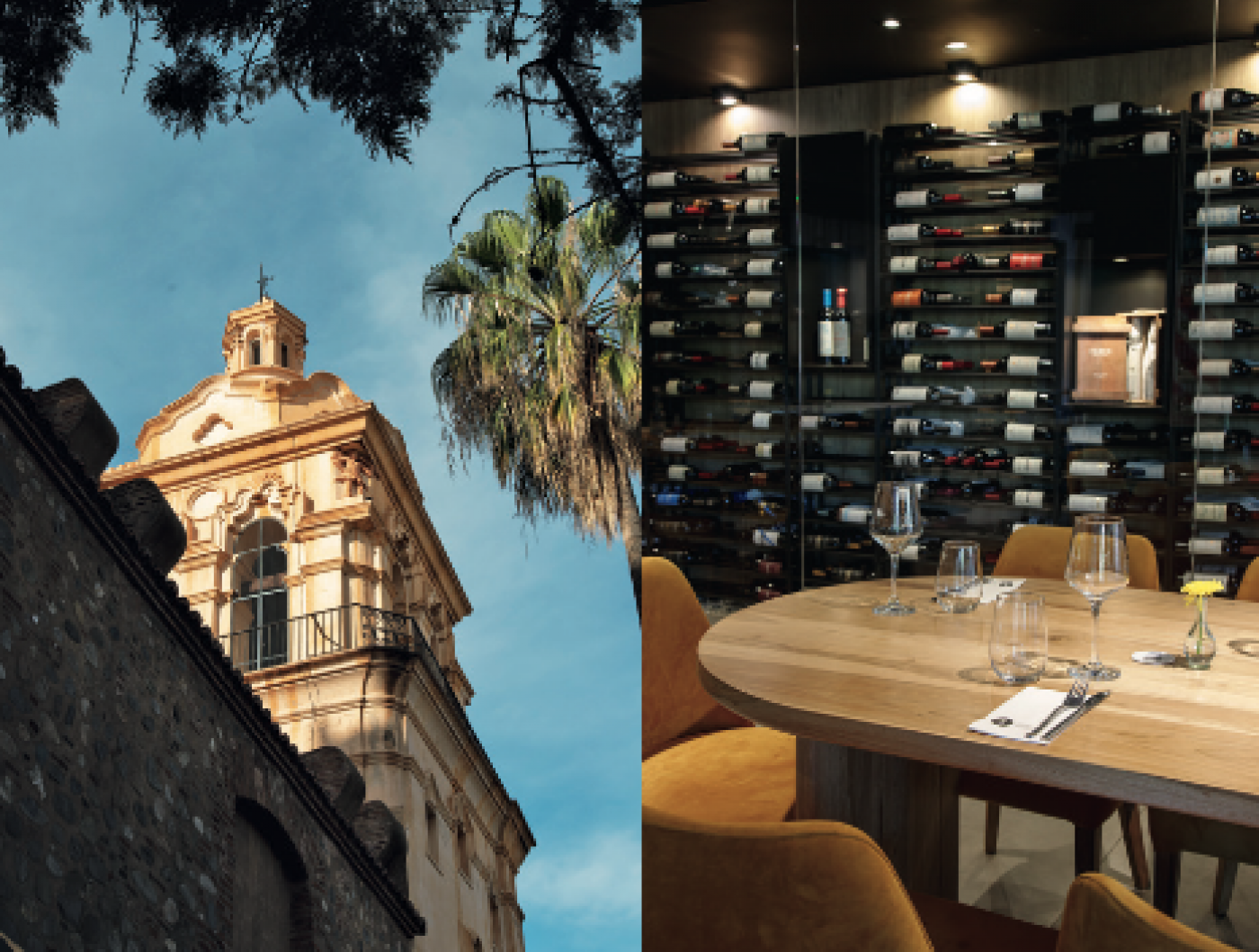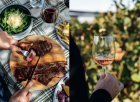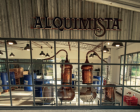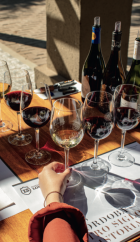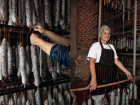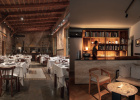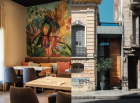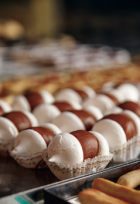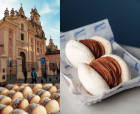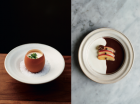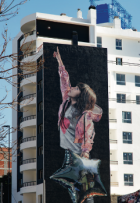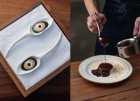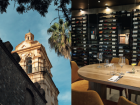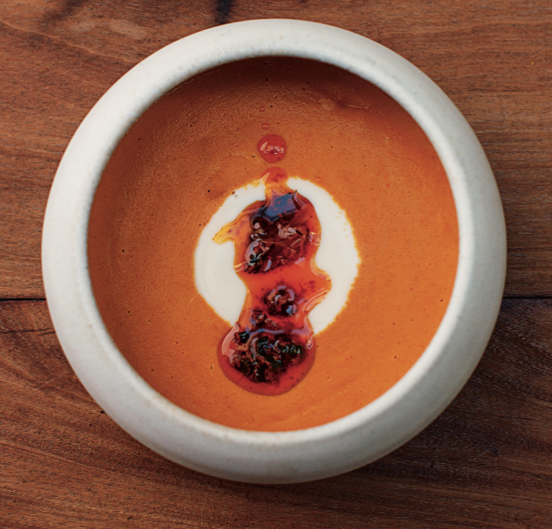
Food and Travel Review
It’s not easy being the second city, particularly when the one you’re playing second fiddle to is as dazzling as Buenos Aires. But historic Córdoba, land-locked in the heart of Argentina, certainly holds its own. Not to be confused with the Spanish city of the same name, the Córdoba of the southern hemisphere was founded in 1573, making 2023 its 450th anniversary, and was soon settled by Jesuits. A city of scholars and intellectuals, thanks to its six universities – one of which is the National University of Córdoba and one of the oldest in all of South America – Córdoba is also home to a number of self-taught chefs and enterprising local producers. Their passion for food is their driving force; in place of diplomas, the emphasis is on creativity and tenacity.
Snippets of European influences are to be found everywhere, from the intricate details of the cathedral and churches in the Jesuit Block to the Italian, French and Spanish surnames of the city’s residents. But there’s a distinctly Argentinian stamp on Córdoba too; a sense of national pride, a revolutionary streak, the unwavering priority of family and a clear appreciation of the vast hectares that produce the nation’s ingredients.
‘It’s difficult to speak about Córdoba’s gastronomy,’ declares Federico Ernst, chef at República Restaurant in the north of the city. ‘It’s a mix of many influences from Spain and Italy as well as our own lands. We’re trying to focus on produce that’s native to our surrounding mountains.’ Presenting his curated Córdoba tasting menu, featuring dishes like oven-baked Córdoban beef empanadas accompanied by a spiced chutney made from chañar, a native fruit, he says, ‘I’m from a rural farming family. I have no formal training as a chef but I grew up cooking. In my family, all important matters happen in the kitchen.’
Not to be missed is the feather-light goats’ cheese mousse, sprinkled with chunks of salty salami, drizzled in olive oil and dotted with thyme, all sourced from the region and its mountains. For those with a sweet tooth, the dense nougat-style mantecol bar made from pure peanut paste – the city is a significant global peanut producer – is perfectly paired with a white chocolate sauce infused with aguaribay seed fragments, also native to the region and commonly known as pink pepper.
Still in the north of the city, Goulu restaurant, café and bakery is an ode to slow food. What started as a little delicatessen devoted to selling local produce, from cheeses, olives and cured meats to jams, has blossomed into an upmarket venue honouring traditional, meat-heavy Córdoban cuisine such as hefty beef sandwiches lined with creamy homemade mayonnaise as well as more vegetarian- friendly pickles and chutneys made from prickly pear, a fruit from the cactus family. Another self-taught chef, Gabriel Reusa, is at the helm. A former banker, his career forked when he had to choose between tech software entrepreneurship and following his heart to develop Goulu. His heart won. So fervent is his passion for his native region and its gastronomic potential, that Gabriel co-founded an organisation and platform called Utuco, which is dedicated to celebrating and promoting Córdoba’s local producers and ingredients. The word utuco means ‘abundance’ in Comechingón, the language of one of Córdoba’s Indigenous communities, and it’s this that makes the region so special for him.
‘My kitchen was my cookery school,’ he shares, as he indicates his restaurant’s pièce de résistance: a room with maps, artwork, hand-painted murals and photographs showcasing Argentina’s history, from maritime routes to Indigenous communities. Gabriel reiterates Córdoba’s European links as he serves up Argentina’s most renowned cocktail, fernet con Coca (fernet with Coke), which was conceived here. Fernet is an Italian style of bitters with a distinctly herbal, minty, even medicinal taste. The idea to fuse it with Coca-Cola reflects most Argentines’ love of sugary, sweet substances, no matter the time of day.
Heading north out of the city, you glide along smooth roads with the outline of the fruitful Sierras Chicas mountains drifting by to the left. Here, it’s easy to grasp a sense of the vastness that is synonymous with Argentina. You soon realise that beyond the city there is a rural, slower-paced way of life that thrives thanks to the lushness of the grasslands and soils.
A 40-minute drive brings you to the town of Colonia Caroya, whose main street, Avenida San Martín, is lined with a tunnel of sycamore trees. Renowned for its salami and cured meats, epicureans from all over Córdoba, and indeed Argentina, come here on carnivorous pilgrimages. Local producer María Inés Brandalise is bouncing with enthusiasm as she explains Colonia Caroya’s history. ‘In 1878, the government created an immigration law to invite Italians, specifically from Friuli, to come and populate Argentina. So 200 families arrived at the end of the 19th century and were each given six hectares of land. This is why today there is such an Italian influence in Córdoba,’ she says.
The Italian arrivals brought with them their tradition of creating fruit conserves and, of course, their beloved cured meat practices. María Inés, her husband and two sons run the family salami business, Don Lino, and she insists their recipe is a closely guarded secret – no matter how hard you might try to prise it out of her.
A few streets away on the outskirts of Colonia Caroya is the elegant Terra Camiare winery. Don’t let its contemporary, neutral- toned design fool you: it dates back to 1929. Today, Gabriel Campana is Terra Camiare’s revered, third-generation winemaker who’s described by Córdoban chefs as ‘an absolute genius’. No self-respecting winery would be complete without a comprehensive tour and tasting, which is exactly what’s on the cards here. Terra Camiare produce an impressive array of grape varieties including malbec, cabernet franc, chardonnay and the regional grape Isabella, which is delightfully smooth and light.
Thanks to the Jesuits, Córdoba is in fact home to the first wineries in Argentina, and the name Terra Camiare nods to Córdoba’s rich and diverse history, including both Spanish Jesuits and Italian immigrants, but also the Indigenous community of the region, the Kamiare. Wandering around the nine hectares of vines – you may be joined by owls, fluttering from vine post to vine post while keeping a watchful eye on visitors – admiring vines and sipping wines will, of course, work up an appetite. So it makes sense to drive 10 minutes north to Colonia Caroya’s adjoining town of Jesús María to experience perhaps the most Argentinian of dining experiences: a parrilla (grill). While Córdoba is modernising its cuisine in many respects, high quality, succulent steak will, it seems, always remain on the menu.
La Cautiva parilla is owned by Italian Cristián Baldovín, who moved here from his native Veneto in 2000. ‘I arrived in Argentina at a time of financial crisis,’ he explains. ‘When I came here, most Argentinians were travelling in the opposite direction and emigrating to Italy.’ Economic factors aside, Córdoba’s longstanding link with Italy clearly remains prominent and will continue to attract Italians, not least because of the clement climate.
The ribeye steak Cristián prepares is predictably and tantalisingly perfect. Both juicy and pristinely charred around the edges, the tender meat is sprinkled with Patagonian mineral salt that enlivens the flavour. It’s not just the salt flakes but the meat itself that seemingly dissolves on the tongue.
Continuing along the road, driving through verdant hilly roads and sleepy rural villages, you arrive at a colourful field just outside the town of Río Ceballos, and a vista of vibrant flowers. This field is home to the modern and luminous Alquimista gin distillery, which was refurbished from a former chicken run.
Husband and wife duo Gian Della Vedova and Virginia Sahade fell in love with the world of gin while living in Switzerland and wanted to return to their native Córdoba to be closer to family and create their own distillery. The result is Alquimista, which is open for visits and occasional sundowner events for sociable town dwellers to enjoy gin cocktails, from basil smashes to brambles and beyond, while admiring the wonderful amber sunsets.
Back in Córdoba’s city centre is the stylish Bros Comedor, helmed by another self-taught chef with Italian roots, Franco Ghione. ‘From the age of 12, I took over the family cooking,’ says Franco. ‘It’s always been my hobby. A couple of friends and I wanted to open a restaurant and serve modern twists on traditional dishes. Once we found this building, we knew it would be the home of Bros Comedor.’ And it’s easy to see why the building sealed the deal for these entrepreneurial young men. Overlooking the central square, Paseo Sobremonte, Bros Comedor has a colossal window allowing in bounds of light. The contemporary, bold blue and terracotta colour of the restaurant and the foliage dotted around is evocative of the food – an eclectic fusion that showcases Córdoba’s youthful side.
Bros Comedor also represents the city’s expanding and evolving palate. Franco recalls that many locals thought it was overly ambitious of him to move away from purely barbecued meat, but now there’s no denying the restaurant is a hit. Sweet and sour aubergine with a date chutney paired with calming yoghurt speaks to Arabic influences, both from Moorish Spain as well as Lebanese and Syrian immigrants who have made their home here over the decades.
Just around the corner is Córdoba’s showstopper restaurant, its fine-dining favourite child. El Papagayo is Argentina’s narrowest restaurant, tucked between two 19th-century buildings in a corridor that is 2.3m wide yet feels surprisingly spacious. Exposed red brick clashes with smooth, grey concrete, creating a storied yet modern feel. Chef Javier Rodríguez, one of Argentina’s most acclaimed rising stars, originally qualified as a lawyer but found he couldn’t ignore his culinary passion. After 10 years working in restaurants around the world from Copenhagen to Singapore, Javier returned to Argentina to create a gastronomic masterpiece.
With a tasting menu that changes seasonally, Javier’s energy and creativity radiates from the entire team who thoughtfully welcome diners. The star of the show, and the only dish that remains constant on the menu, is an egg. But this is quite definitely the most exquisite egg you will try in your lifetime. With the top of the shell neatly and painstakingly removed like a smooth lid, inside your teaspoon delves down into an underworld of sumptuous texture and taste. Once in your mouth, you’ll appreciate the exquisite fusion of smooth egg yolk and crème fraîche, the light crunch of miniature croutons, the sweet sliver of chañar marmalade and the rounding freshness of a chive-sprinkled finish. You know for certain no future egg will ever compare.
And this perfect egg experience could well represent Córdoba as a whole: seemingly straightforward, but once the surface is pierced it becomes intricately layered, textured and flavoured. The province is, after all, the land of utuco. Its gastronomy and culture pay homage to the region’s Indigenous inhabitants as well as a complex history that blends ubiquitously with European traditions. A visit to Córdoba is essentially a lesson in never underestimating a second city, especially when it’s in the beating heart of a country as vast and abundant as Argentina.
Food and Travel travelled courtesy of Visit Argentina. argentina.travel
Where to stay
Azur Real Boutique Hotel This stylish hotel in central Córdoba’s historic Jesuit Block has underground spa baths that form a circuit inspired by ancient Roman water treatments, while the roof terrace offers views
over the city’s spires. Doubles from £204. San Jerónimo 243/257, 00 54 351 424 7133, azurrealhotel.com
Casa Papagayo A boutique design hotel with five mini suites, opposite El Papagayo restaurant, providing a contemporary and minimalist hideaway in the very heart of Córdoba. Doubles from £142. Arturo M Bas 70, 00 54 351 641 3655, elpapagayo.com.ar/casa
Estancia El Colibri Historic Relais & Chateaux ranch in Santa Catalina. The nine carefully curated rooms feature hand-painted designs and there’s a swimming pool and spa with a hammam, massage parlour and hot tub. Doubles from £452. Cam a Santa Catalina Km7, Santa Catalina, 00 54 352 546 5888, estanciaelcolibri.com
Estancia Los Potreros At this magnificent 2,630ha cattle ranch in the Sierras Chicas mountains you can take up outdoor pursuits like galloping with gauchos and playing polo, and the farm-to-table Los Pots Kitchen serves locally reared beef and homemade fig jam. From £460pp (minimum 3 nights) full board, including wine and excursions. Camino al Cuadrado, Río Ceballos, 00 54 9 351 766 6400, estancialospotreros.com
Travel Information
Córdoba is a province in the heart of Argentina, home to mountains, lakes and agricultural plains. Córdoba city is the capital of the province and is famous for its Unesco-recognised Jesuit Block and Spanish colonial architecture. Currency is the Argentine Peso and time is three hours behind GMT. Flight time is around 16hr 30 min from London to Buenos Aires, where you can either take a 1hr 30 min domestic flight to Córdoba or hire a car and drive there in around seven hours.
GETTING THERE
British Airways offer flights from London Heathrow to Buenos Aires Ezeiza Airport, a 1hr 30min flight from Córdoba city. britishairways.com Aerolíneas Argentinas has flights from Buenos Aires Jorge Newbery Airport to Córdoba Airport, which is a 30-minute drive from Córdoba
city centre. aerolineas.com.ar
RESOURCES
Visit Argentina is the national tourism board, with plenty of advice to help you plan your trip. argentina.travel
Córdoba Tourism has information on hiking trails, scenic routes and local activities. cordobaturismo.gov.ar
Where to eat
Prices are per person for three courses excluding drinks, unless stated
Bros Comedor A convivial restaurant overlooking Paseo Sobremonte square. Self-taught chef Franco Ghione conjures dishes like white polenta with miso butter and olive oil mousse with dulce de leche. From £30. Second floor, 27 de Abril 568, 00 54 351 802 9418
El Papagayo Argentina’s narrowest restaurant and Córdoba’s most elegant fine-dining option. Chef Javier Rodríguez presents a seasonal menu that includes ingredients from the Córdoba region like chañar fruit chutney, pickled quince and steak tartare. From £40. Arturo M Bas 69,
00 54 351 425 8689, elpapagayo.com.ar
El Papagayo Petit Café A miniature coffee house and vermouth bar near the restaurant, also serving brunch and lunch – try pistachio and lemon alfajores or chocolate chip cookies, washed down with locally roasted coffee. Brunch from £10. Arturo M Bas 72, 00 54 351 425 8689, elpapagayo.com.ar
Goulu This upmarket restaurant, café and bakery is the passion project
of self-taught chef Gabriel Reusa. There’s a large selection of Córdoban and other Argentinian wines, with meat very much on the cards, including locally sourced beef and goat. From £35. Av Rafael Núñez 4308,
00 54 351 481 8086, goulu.com.ar
La Cautiva Cristián Baldovín is the chef-owner of this classic steakhouse with open-fire grill and will cook up a meaty storm whether it’s steak, ribs or lamb, served with homemade chips. From £25. Pedro J Frias, corner José Hernández, Jesús María, 00 54 9 352 561 9505, lacautivaparrilla.com.ar
República Restaurant A homage to Argentina, this modern restaurant has chef Federico Ernst managing the five-course Córdoba menu that showcases the region’s best produce, including goat’s cheese mousse, salty salami and chunky beef empanadas. Five-course tasting menu £48pp. Av Recta Martinolli 5631, 00 54 354 347 1131, republicarestaurant.com San Honorato Father and son duo José and Esteban Picolotti invite diners down to the wine cellar for an apéritif while waiting for dishes
to be served. Chef Federico Czarlinski’s specialities include grilled
salmon sorrentinos (stuffed pasta) and soft sweetbreads marinated in
a fragrant malbec and fenugreek sauce. From £30. 25 de Mayo 1208,
00 54 351 453 5252, sanhonorato.com.ar
Standard 69 Another of chef Javier Rodríguez’s creations, Standard 69 has two outposts. The relaxed Güemes address serves international classics with an Argentinian twist like barbecued pork tacos and
grilled courgette with rocket pesto and feta cheese. From £25.
Achaval Rodriguez 244, 00 54 9 351 771 9507, standard69.com
Food Glossary
Get Premium access to all the latest content online
Subscribe and view full print editions online... Subscribe

